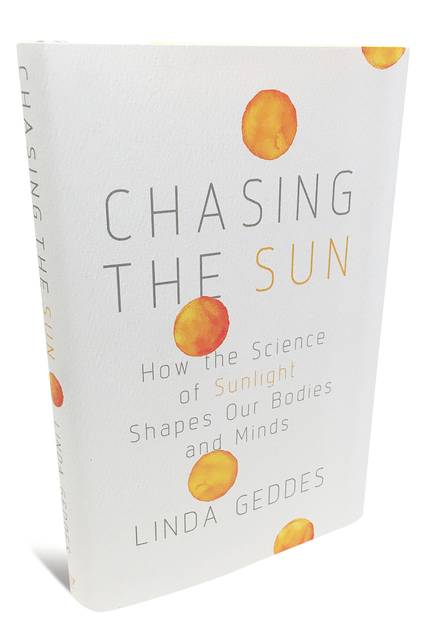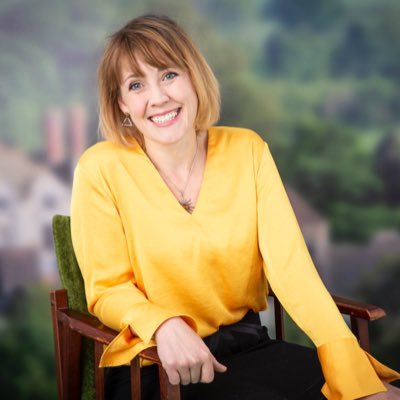

Science journalist Linda Geddes writes about the power of the Sun over our lives. Citing scientific studies and research, Geddes shows how sunlight affects circadian control, cancer, Alzheimer’s disease, diabetes, coronary artery disease, schizophrenia, obesity, and sleep.
My mother was diagnosed with Seasonal Affective Disorder (SAD) and a sunlamp helped her mood immensely during the dark Western New York winters. When I was a college student, I worked the Midnight Shift at a local Goodyear Chemical plant. Staying up all night and sleeping all day made me feel awful. I was so glad when that job came to an end! Geddes documents how low Vitamin-D affects health when people don’t get enough sunlight. Of course, too much sunshine can trigger melanoma so you have to be careful. I found Chasing the Sun an informative and useful book. Are you getting enough sun? GRADE: A
TABLE OF CONTENTS:
Introduction 1
1 The Body Clocks 16
2 The Body Electric 40
3 Shift Work 67
4 Doctor Sunshine 89
5 Protection Factor 111
6 A Dark Place 127
7 Midnight Sun 145
8 Light Cure 156
9 Fine-tuning the Clock 177
10 Clocks for Society 189
Epilogue 206
Acknowledgements 211
Notes 215
Index 227
Getting enough sun? It’s winter time in Michigan. A lot of gray overcast days. I worked about 5 years in a GM assembly plant when young. Often I worked 2nd or 3rd shifts Getting home about 7 in the morning. Never could sleep well during the day. Can’t imagine winters in Scandinavia or Alaska where it’s dark 20 hours a day.
Steve, Western NY is cloudy most of the Winter, too. I take Vitamin-D and try to catch some sun whenever it peaks out from the clouds.
I have a sun lamp and often forget to use it. I detest Michigan winters, which I am told are the darkest outside either Alaska or Seattle. Anyway, way too dark for people given to depression.
Patti, we have many friends who leave Western New York for the Winter and spend three months in Florida or Arizona because they hate Winter here, too.
I try and avoid the sun as much as possible and always use sunscreen. But yes, sunlight is obviously important. A semi-aside: I think we tend to think (at least I do) that New York and London are the same, not only similar as cities but the same latitude. Don’t we? But no. New York is 41 degrees North, London is 50. We are further south than Paris, closer to Madrid in fact. Anyway, that affects what follows. We all know that the summer solstice is the longest day in the Northern Hemisphere. After Pan Am 103 was shot down over Lockerbie in December of 1988, Pan Am was offering cheap flights to England as long as you went by the end of June (I think). We left the day school ended, flew to London, then were in Edinburgh (55 N.) by the first week in July. It was a revelation! It was still light out at 10:30 at night. We had to pull the curtains shut tight in the hotel room to be able to sleep. I can only imagine what it is like at the end of June in Scandinavia.
/end Deb-like aside
Jeff, you are right about sunscreen. We have several friends who are dealing with melanoma because they spent too much time out in the sun. My father, during his teaching years, used to paint houses with a friend during the Summers. You can imagine these guys on ladders–without shirts–hours each day…in the sun. No one used sunscreen in those days. My father had skin cancer removed from his nose in his 70s. The surgeon told him it was sun-related.
This reminds me that I’ll have the skin specialist have a look at me again – already had several small ops where they removed Basalioms aka “white cancer”.
As a child I lived many years in my parents’ home just 200 m from the river Neckar and he “bath” there – just an area in the river …
So we spent a lot of time in the sun and we only had sunscreen factor 2.
Since I’m a natural blonde I got way too much sun, had sunburns regularly …
Now we have sunscreen factor 50 for the young ones.
Sunshine surely is good – but too much?
Wolf, sunscreen is a must now that the ozone layer is depleted.
You read the darnedest things.
Rick, my interests are myriad.
We were in Amsterdam for a year and in the summer it was light until nearly eleven and light again fairly early Hard to bet enough sleep. And in winter, of course, the opposite.
Patti, I always used to be sick in the winter: colds, flu, ear infections, etc. But since my doctor put me on Vitamin-D about six years ago, I’ve become way more healthy in dark months of the year.
Or the fact that you’re retired and no longer exposed to all those people several times a week might have had something to do with it. Jackie had bronchitis almost annually when she was in the classroom, but only once since she retired 15 years ago.
Jeff, you may be right. The College was a germ factory with all the sick students.
i
am
a
child
of
the
night!
It
embraces
me
and
I
love
it!
Bob, just don’t get rickets.
An interesting premise for the book, George. In spite of India’s abundant sunlight and unbearable heat some nine months of the year, many Indians are Vitamin D deficient or insufficient; something medical professionals found out as recently as a decade ago. Now doctors routinely prescribe Vitamin D test. I have taken weekly supplements for a few weeks almost every year. Clearly, we take the sun for granted.
Re. what Richard said, how do you happen to read such unusual books? I mean where do you read about them?
Prashant, I read the WALL STREET JOURNAL every day and it includes daily book review. I also read THE ECONOMIST which includes book reviews. And, of course, THE NEW YORK TIMES BOOK REVIEW.